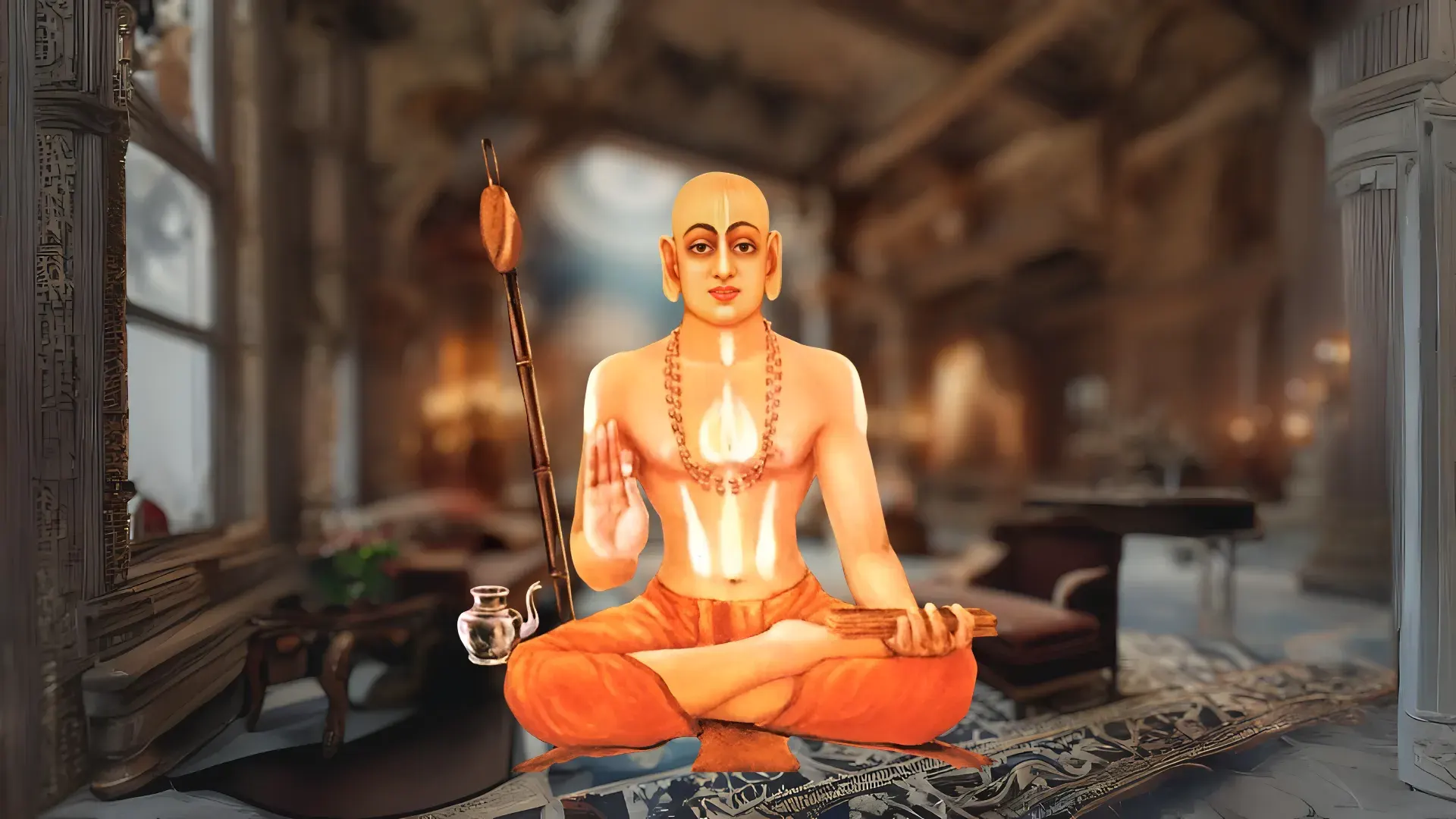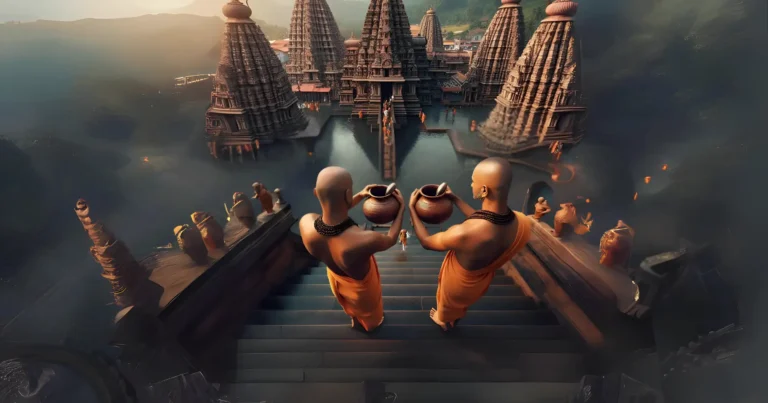Please Like the Blog and Share it for Maximum Reach
Table of Contents
Tattvavada is not Dualistic
Sri Madhvacharya set new standards in World Philosophy. Tattvavada is the name given to Madhvacharya Philosophy. In later years, people started pitting Madhvacharya philosophy against all other forms of philosophy and coined the name “Dualistic philosophy”.
People call Tattvavada Dualistic philosophy or Dwaitavada. But this terminology is misleading and demeans the richness of this wonderful philosophy. This name is far from reality, considering the Vedic tradition of this philosophy.
The term Dwaitavada (द्वैतवाद) or Dualistic philosophy is what people use to address Tattvavada because they do not quite understand this philosophy.
Components of Tattvavada
Tattvavada has two fundamental components namely Svatantra tattva (स्वतंत्र) and Asvatantra tattva (अस्वतंत्र). They are a dependent reality and independent reality, in layman’s language.

God or Ishvara (ईश्वर) is the independent reality, while the rest of the universe which God created, is the dependent reality. Lord Narayana is the Original Supreme Personality of Godhead. The Vedas and the hymns covered in the Vedic compositions are for His praise alone.
Other epithets such as Agni, Varuna, Indra are sometimes used to praise Him.
These epithets are expansions of the same Personality Narayana and hence Monotheism is the essence of Vedic literature and not polytheism as many believe.
Love is the only feeling to attract God
All names are the names of God, that define and illustrate his various energies. Hence using any one name is enough to invoke God. This is the Vedic dictum.

The Vedas do not exhort the use of Sanskrit language to invoke God. What is important is the language of love, the involvement of the heart is a must. Otherwise, any spoken language has the ability to invoke Him, at all times.
The Vedas proclaim that all the names of the world represent God alone. There is nothing that does not depict God. This is the simple conclusion of the Vedic Literature, according to Sri Madhvacharya.
God is One, Divinities Several
Although God is one, divinities are several. Each individual soul is a separated part and parcel of God. Each soul is different and although they represent the energy of the Lord, they are not the Lord, by themselves.
The goal of the souls is to realize their source, their Master, God in particular. Souls that have attained God, realize their total dependence on God and hence reached the high state of Siddhi (सिद्धि) or divine power.
These souls are Sages or Siddhas, who dedicate their lives guiding the lost souls, back to their source. They help in inculcating values and teach sadhana to the sincere seeker.
Bimba and Pratibimba
God alone is the source or Bimba (बिंब). We, the living entities are His images or reflected personalities or pratibimba (प्रतिबिंब).
The reflection can never become the source. Reflection depends on the source.

Souls are countless, but the Source is one, Sriman Narayana. Each soul is different from the other and has its own individuality. The gradation and shades of the soul are multifarious.
But, at the core, all are singularly dependent on the One source, Sriman Narayana. Similar to souls, Prakriti, nature, or inanimate substances form the major creative aspect of this universe.
The soul or enmeshed Jiva interacts with Prakriti or inanimate substances, finally entrenched in it. Thus the soul spins a web of a self-defeating mesh of Samsara around itself, because of excessive indulgence with Prakriti.
The whole intention of this game is to free oneself from the clutches of Prakriti and become liberated. A liberated person directly attains the service of Sriman Narayana and then enters the eternal plane of freedom from bondage.
Test your Alignment with the Spiritual Subject Matter (only 7-8 Questions)
The scores generated in this Quiz are relative. There are no right or wrong answers. A percentage towards 100 indicates that you are more aligned to the overall subject matter.
Liberation is not the End of Everything
It is important to understand the nuances of the word liberation because liberation means different things for different people.

According to Sri Madhvacharya, Liberation does not mean the cessation of the World, falsely held as real, as Sri Adi Shankara claims. Liberation simply means to be free from the compulsions of the world.
The world shall continue to exist, even after Liberation. Yet there shall never again be any compulsion or bondage. Before liberation, the soul was not self-aware, it had to realize that it was ever conscious, quite surprisingly.
It had not realized that it was thoroughly manipulated by the insentient. Over and above that, the soul was unaware of the original substrate, God on which the entire universe functions. After release, the soul has become completely conscious of God and consciously depends on Him alone, and accepts God as the original cause of all causes
What is Prapancha?
Prakriti or the insentient world is five faceted. It has five elemental essences, five sheaths, five sense organs, five knowledge senses, five action senses, and five-element disturbances or Pancha Dosh.
That is why the world is also called Prapancha (प्रपंच). Or a perfect pentad.
These elements mix up with the five types of winds namely Prana, Apana, Vyana, Udana, and Samana. These five types of winds are also controlled by God in his five forms namely Aniruddha, Pradyumna, Sankarshana, Vasudeva, and Narayana.
Some Teachings of Madhvacharya
Sri Madhvacharya’s philosophy talks of 5 types of differences namely each component of Prakriti is different from the other. Each soul is different from other souls.
A soul is different from God. The soul is different from Prakriti and Prakriti is different from God. These differences are not temporary but they are eternal differences. Nothing can bridge these differences.
For a more detailed description of this theory Read: Religious Teachings of Madhvacharya
Some of the other teachings of Sri Madhvacharya are as follows. God is both form and formless. He is both qualified and unqualified. He is formless because he is far away from our conscious reach. Qualification is an essential epithet to describe God because all qualities emerge from him. He is also unqualified because he has no material adjuncts.
When we describe God, we are just expressing facets of the same One Truth. The Vedic literature is cryptic only to the one who is not in agreement with this philosophy of Madhvacharya. Some of the other highlights of Sri Madhvacharya’s teachings are:
There is no single object which is like the other. Every object, every individual is special in its own ways. The all-around development of this specialty is the goal of mankind.
Human bondage is nothing but a live workshop that teaches mankind to wholly depend on God. Mukti, Moksha, or Liberation is that state of perfection, which consummates the flowering of perfection within an individual soul.
Each Jiva is Different

Everyone’s attainment is in the proportion of one’s effort. Even two particles of mud are not exactly the same.
Sri Madhvacharya vehemently opposes Sri Shankara’s view by saying “The idea of trying to become one is only sugar-coated fakery. He boldly goes on to say, that it is not in agreement with the Scriptures. It is an idea opposed to the law of Nature.
The development of an individual takes place based on his internal nature, at his very root. The environment only helps this nature to manifest. The spontaneity of the Jiva is verily a reflection of what he is, at his very core.
This nature exists from time immemorial. No amount of effort can alter this. The innate characteristic of a Jiva never changes. A Satvika or a pure-hearted man can never become a tamas or an evil-minded man. Nor can a tamas man become Satvika.
According to Madhvacharya, perfection is the complete manifestation of one’s unique individual nature, to full capacity.
Please Like the Blog and Share it for Maximum Reach




